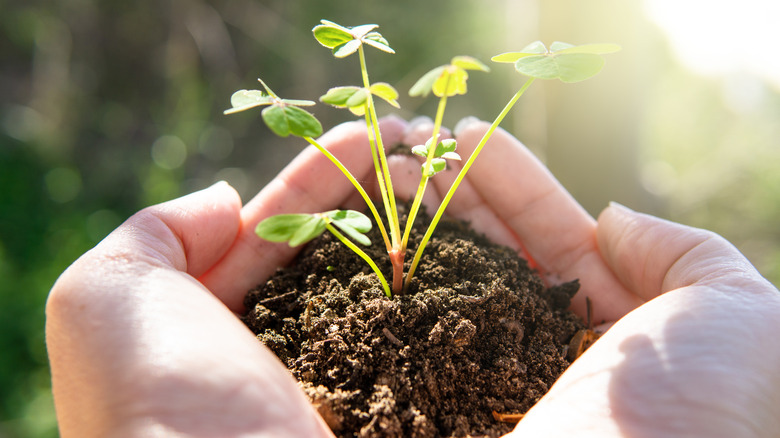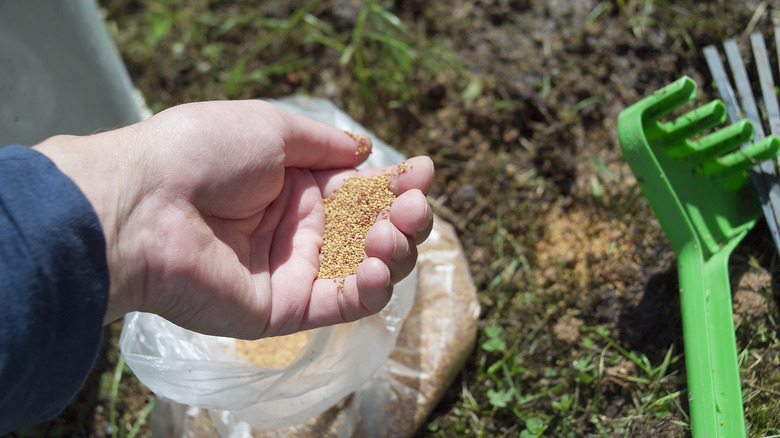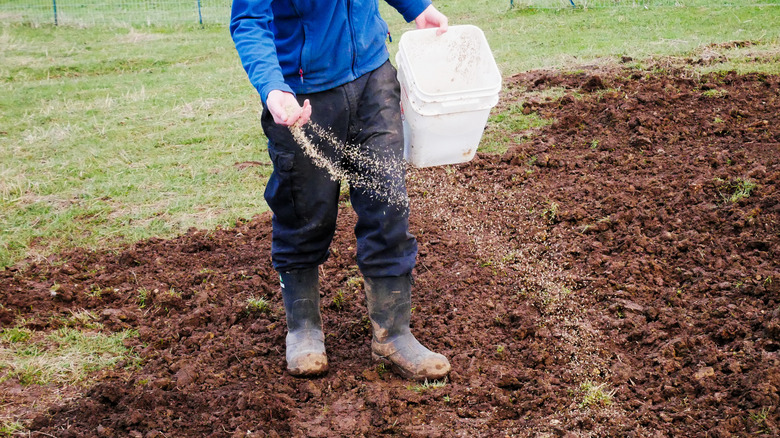What Seeds To Buy When Starting A Clover Lawn For The Best Results
Clover lawns have recently gained a lot of attention online through social media and gardening forums. Chances are, you have already seen some people boast about hosting a plush afternoon picnic or running barefoot through their summer clover fields. These dainty plants, once treated like weeds, are an excellent eco-conscious and low-maintenance grass lawn alternative! Clover lawns don't need to be mowed more than a few times per year, if at all, and will thrive in a variety of conditions. Worried you may be a neglectful lawn owner? Clover actually fares better with minimal watering and no fertilizer. Some of the most popular clover varieties for clover lawns include white clover, red clover, micro clover, crimson clover, and strawberry clover.
Of course, there are dozens of other clover varieties that can work in a clover lawn, so it's important to do your research to ensure your clover lawn grows to look full, lush, and healthy. Determining the best kind of clover seeds for you will depend on your local climate, soil type, and the desired look and durability of your lawn.
Finding the best clover seeds for you
Clover is a surprisingly tolerant plant and will grow in soil types ranging from sandy loam to wet clay. Of course, different varieties will have their soil preferences; for example, red and white clover will thrive in loam and clay, while arrowleaf and crimson clover love sandy soil. Soil pH levels should be above 6.0 for all clover types, with some even preferring a pH as high as 8.5. If your soil is more acidic, you can add lime to raise the pH slightly and choose a clover variety that is more acid-tolerant, such as crimson clover or red clover. On the other hand, berseem clover is a good choice for alkaline soils. Applying a mixture of clover seed types is a great way to increase visual variety.
Once you've determined which kind you need, where can you buy clover seeds? Your local plant nursery is a great place to start, but it's also relatively easy to find clover seeds at home supply stores. Home Depot offers a 2-pound bag of Scott's Turf Builder clover lawn seeds. You can also purchase Dutch white clover seeds, crimson clover seeds, and more from American Meadows and other similar websites. Different varieties can have slightly different coverage, so you'll likely need to defer to the packaging to determine how much clover seed you'll need for your lawn.
Ensuring your seeds will thrive
Clover can be planted in the spring, early summer, or fall, as long as temperatures are well above freezing. If you're trying to convert a regular grass lawn into a clover lawn, it's best to start with a balanced mix of clover seeds and grass seeds or put clover seed directly over the existing grass, rather than pulling up all the grass and putting down clover. The clover will help to fill in any bald patches between grass clumps as it spreads, ensuring a dense, lush-looking lawn rather quickly. Plus, clover allows you to fertilize your lawn less by turning nitrogen into usable nutrients.
Clear, rake and lightly till the soil to remove any old roots, rocks, leaves, and other debris, then sift your clover seeds over the area in a generous single layer. If you're finding the tiny seeds difficult to work with, you can mix them with lime powder to help weigh them down. After seeding, follow up with another light raking to help the seeds mix in with the soil, but don't bury them completely. Follow the directions on your clover seed packaging to determine how often you should water your seeds. It's important to keep the soil constantly moist until the seeds have germinated and matured. Avoid using strong fertilizers around your clover lawn, especially when just getting started. Clover's delicate roots can burn easily from the chemicals.


